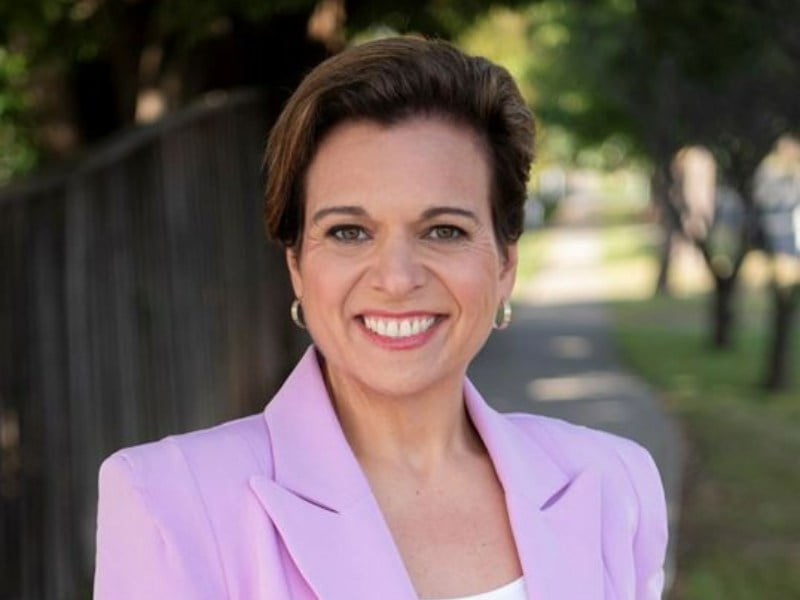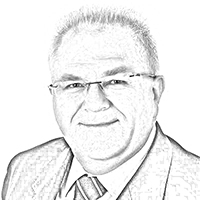Communications minister Michelle Rowland delivered the 2022 Charles Todd Oration at a Telecommunications Association luncheon held in Sydney last Friday, marking the 150-year anniversary of the completion of the overland telegraph from Adelaide to Darwin.
The construction of the overland telegraph, led by Charles Todd, would contribute to the delivery of messages to and from Europe in less than an hour. Before the telegraph link to Europe was established, the fastest means of transporting a message was via the Cape of Good Hope on a sailing ship, a journey that took several months.
“On this 150th anniversary, we honour the contribution of Charles Todd to the communications landscape in Australia,” said Ms Rowland.
However, Ms Rowland acknowledged that the building and operation of the overland telegraph had an impact “on the First Nations people in the local area, with reports of violence and conflict along the frontier shortly after the telegraph was established.”
“Our understanding of the indigenous perspectives of the history of the Overland Telegraph has been scant. The National Communications Museum with Professor Marcia Langton, supported by Telstra, will be leading an important initiative to document the building of the Overland Telegraph from the perspective of First Nations.”
“This will be a landmark project which will ensure that indigenous perspectives are given due weight and recorded for posterity.”

Ms Rowland highlighted Labor’s intention to focus on service delivery that improves outcomes for everyone during its time in government.
Digital Inclusion
In a recent global ranking of digital wellbeing, Australia has dropped 18 positions to be 35th in the world. The study reviewed 117 countries for five aspects of digital life: Internet affordability and quality, e-infrastructure, e-security and e-government.
The digital divide remains a key issue for Australia and Ms Rowland highlighted that in 2020, “the Australian Digital Inclusion Index showed that First Nations people had relatively low levels of digital inclusion – approximately eight points below the national average.”
Ms Rowland spoke of the need to make meaningful progress on “Target 17 in the National Agreement on Closing the Gap – which commits parties to the goal of equal levels of digital inclusion by 2026.”
“The Australian Digital Inclusion Index 2021 (ADII) shows that digital inclusion is trending in a positive direction at the national level. However, there is still a digital divide for regional and rural Australia, with a score of 67.4 compared to a national score of 71.1.”
Ms Rowland stated that it was Labor’s “priority for a more digitally included society, particularly within First Nations communities, unconnected school students, and in regional Australia.”
Labor has identified a “relatively modest cohort of families with no connectivity at home” and has budgeted “to help connect up to 30,000 families who do not have Internet at home.”
This is a positive program with immediate and important social benefits for the families to be provided with an Internet connection.
It is inconceivable that in Australia today we have families that are not connected to the Internet. A positive and lasting outcome would be for this program to become permanent.
Regional Connectivity
Ms Rowland spoke of Labor’s significant past contributions to “expanding access to better communications services for Australians.”
The Chifley Government created the Overseas Telecommunications Commission (OTC) in 1946. The OTC became responsible for the infrastructure and systems used to connect Australia with the rest of the world.
In 1975, the Whitlam Government passed the Telecommunications Act, which separated telecommunications from postal services and led to the government-owned Telecom Australia that was later controversially sold off as a single entity under the Howard Government becoming Telstra.
The Hawke-Keating Government legislated the Universal Service Obligation (USO) in 1991 and introduced competition into the mobile telecommunications market.
Under the Rudd Government, the National Broadband Network was introduced in 2009 to provide universal access to high-speed broadband. This goal has yet to be realised for many Australians.
The Labor government has committed $480 million in funding to NBN Co to upgrading the fixed wireless network. The upgrade will permit 750,000 premises and small businesses within the fixed wireless footprint to access download speeds of up to 100 Mbps and 85 per cent of these premises and small businesses will be able to access download speeds of up to 250 Mbps.
An additional 120,000 currently satellite-only premises will be able to access fixed-wireless.
The government has committed to invest an additional $2.4 billion to fund NBN Co to expand Fibre to the Premises (FTTP) access to 1.5 million additional premises by late 2025. In regional Australia, 660,000 premises and businesses will benefit from this investment.
Ms Rowland has also announced a series of additional investments in regional and rural areas which she says will leave a legacy of improved regional and remote communications,” said Ms Rowland.
“Our Better Connectivity Plan for Regional and Rural Australia will provide an additional $656 million of investment for a raft of important initiatives including a national mobile network audit, improved mobile coverage, resilience initiatives, further rounds of the Regional Connectivity Program, and an extension of the Regional Tech Hub”, she said.
Ms Rowland stated that a further $30 million has been committed “towards expanding on-farm connectivity” and the Mobile Blackspots Program will evolve to “incorporate multi-carrier mobile coverage.”
“Substantial taxpayer funding has gone into these programs [Mobile Blackspots], but less than 1 in 5 towers have two or more mobile operators on them. This is not good enough and we have to do better.”
In closing, Ms Rowland highlighted that “communications touches the lives of every Australian, each day, each week, and each year.”
“Our purpose remains to promote opportunity in a disrupted, broadband-enabled world. Growth and innovation are the goal, and it must be inclusive.”
Mark Gregory is an Associate Professor in the School of Engineering at RMIT University and is a TelSoc Life Member
Do you know more? Contact James Riley via Email.

